
| |
My puppies are raised according to the Avidog and Puppy Culture development and socialization standards. I have also improved some elements through my training as a canine behavior specialist and my 15 years of breeding experience. My program is designed to optimize the puppies' mental, physical and social development.
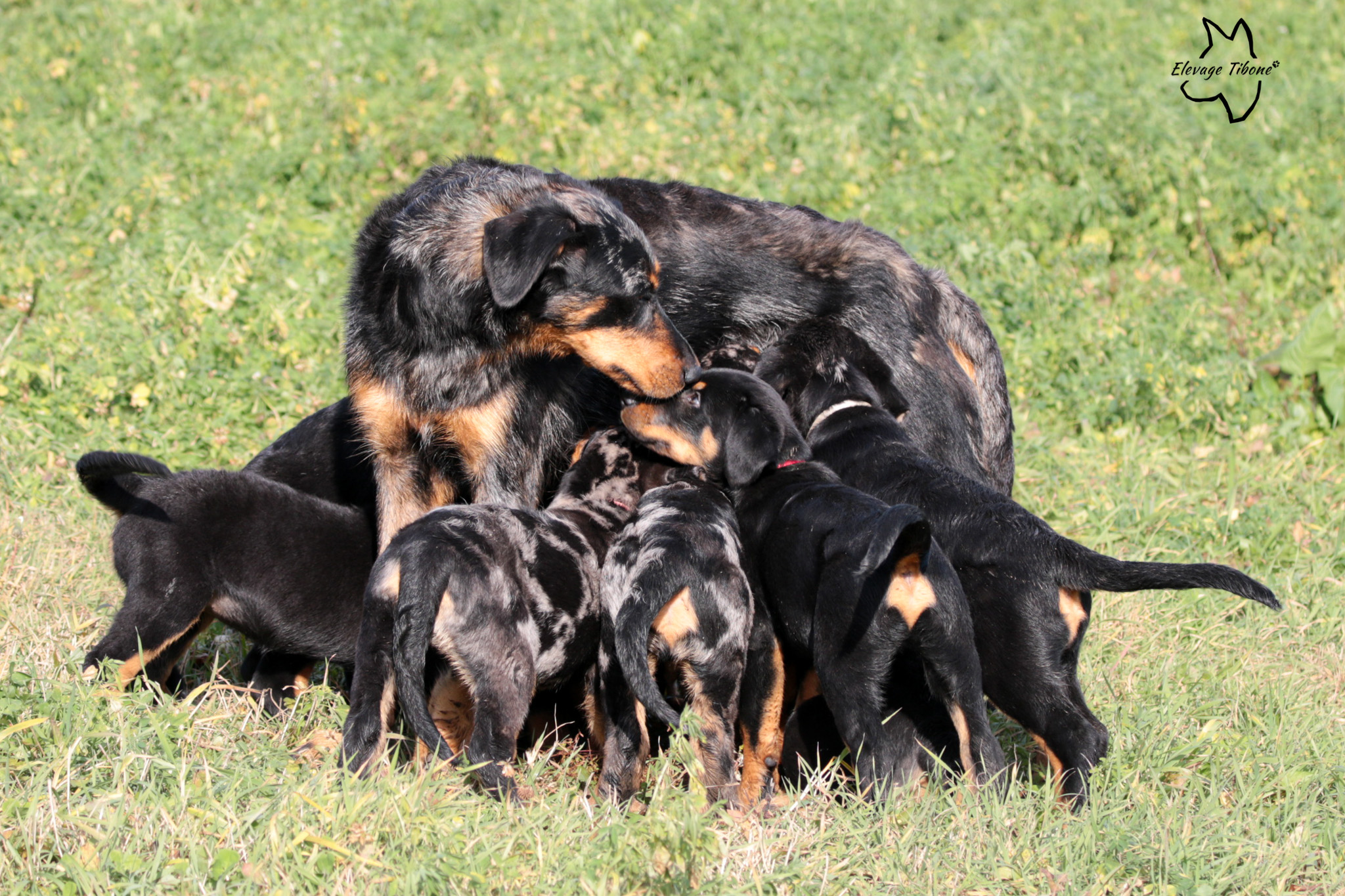
Puppy socialization typically lasts from 3 to 16 weeks. This is a key period when he learns to interact with his environment, other animals and humans.
During the socialization period, the brain is still forming, and experiences leave a lasting imprint. So, even small exposures to novelty (environment, animals, humans) will have a significant impact. Positive experiences during this period boost the puppy's confidence and enable him to become a well-balanced adult dog. On the contrary, negative experiences or a lack of exposure can be detrimental to the puppy's development, increasing the risk of aggression, fear, anxiety and other problems.
A large part of socialization takes place at the breeder's home, and a proper socialization program helps prevent undesirable behaviors in adulthood.
Socialization is much more than exposure to humans and other dogs. It's about preparing the puppy to adapt and thrive in his environment. You have to prepare him both physically and mentally.
My puppies are born and grow up in the house and are exposed to many stimuli: the usual noises in the house (TV, vacuum cleaner, washing machine, etc.), people and the other animals in the house, such as adult dogs and cats.
I also desensitize them to different sounds (thunderstorms, fireworks, city sounds, etc.) by associating these sounds with something positive. For example, I turn on the sound during feeding or when the mother joins their pen. I start with the sound at a low volume and gradually increase it, making sure that all the puppies are comfortable and show no signs of anxiety.
The environment is enriched with a variety of toys, in terms of color, texture, sound and unstable surfaces. The puppies walk on different types of floor, indoors and outdoors, and take walks in different environments (forest, park, village), as well as a visit to the dog center to discover the terrain and agility obstacles.
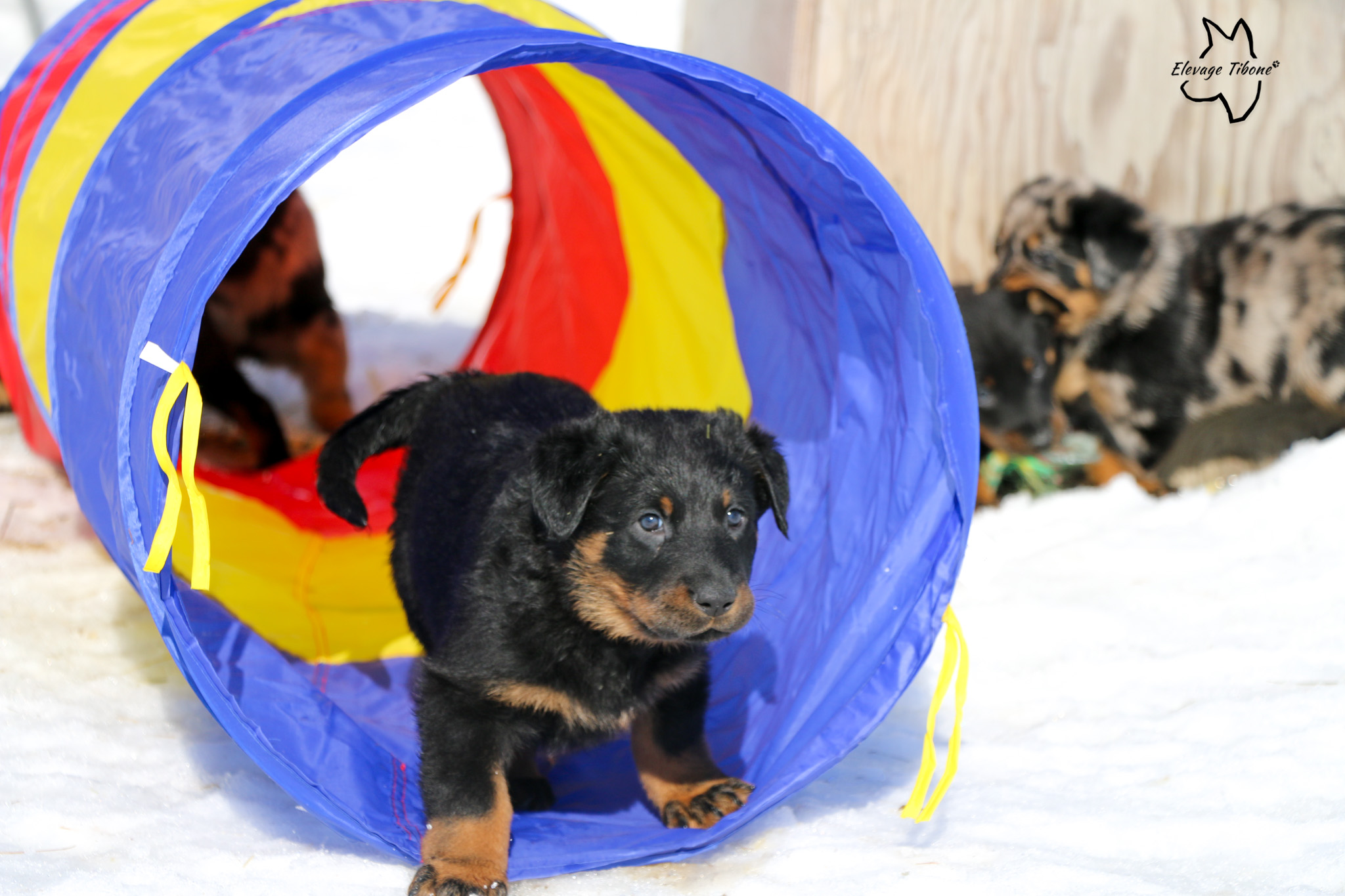
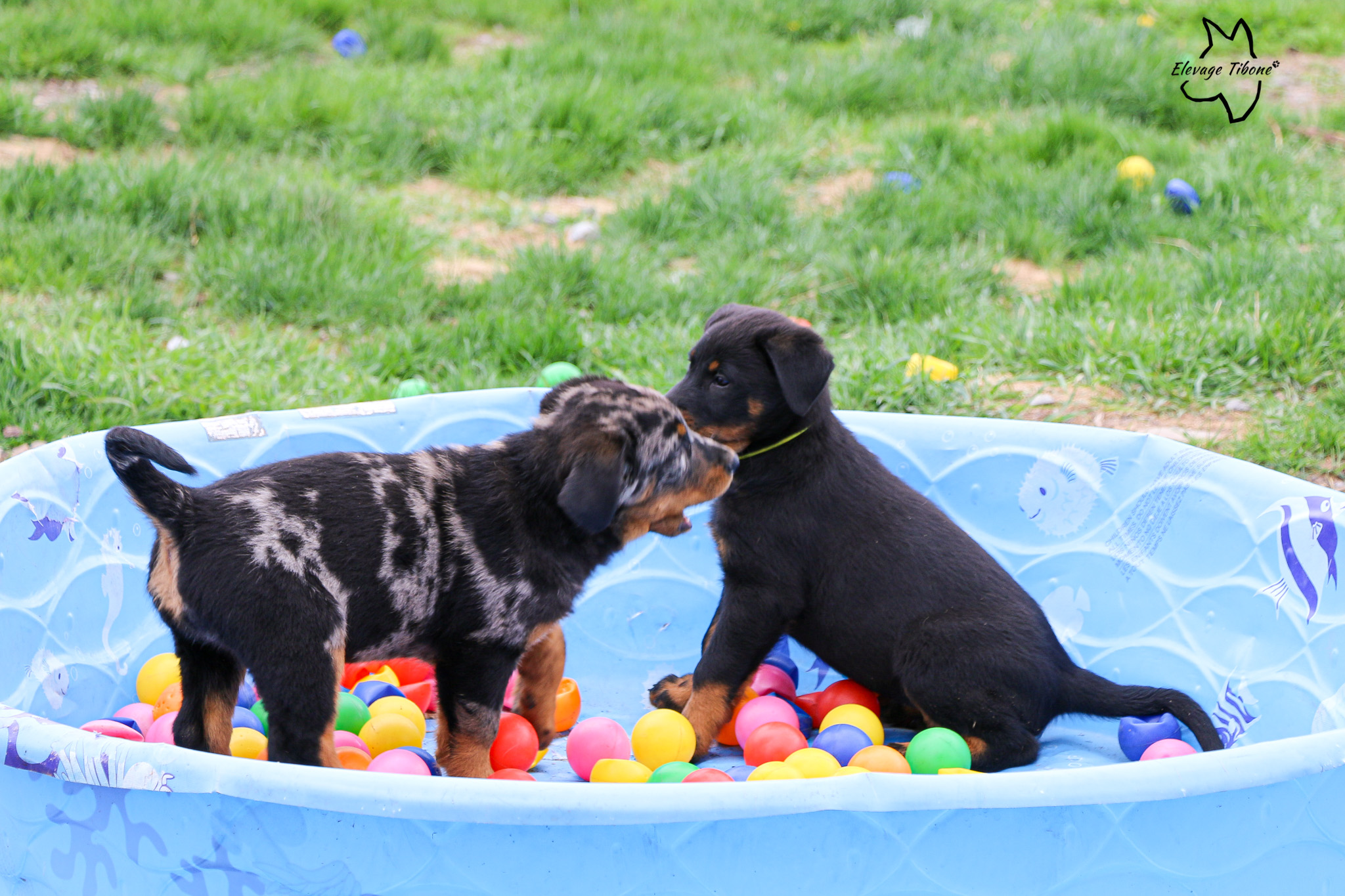
Puppies are potty-trained from the age of 3 weeks. At this age, puppies naturally seek to relieve themselves away from their sleeping area. By placing the litter box next to their sleeping area, they learn to use the litter box. When they start to go outside, I also train them to relieve themselves outside by taking them outside regularly.
I start individual training at around 5 weeks. It's one of the things I love most about raising puppies! Individual sessions allow me to get to know the puppies' personalities and create a strong bond with them.
I use positive reinforcement and do exercises and games that encourage the puppy to take initiative and suggest behaviors. I work on different things like basic positions (sit and down), walking on a leash, touching a target, and so on. While having fun, the puppy learns to control his impulsivity (jumping, biting, etc.), solve problems and gain self-confidence.
The crate is a very useful tool during the puppy's learning phase. It facilitates potty training and ensures your puppy's safety, while preventing him from developing bad habits, such as chewing on furniture or shoes, when left unsupervised.
I teach puppies that the crate is a place to relax and rest. First, I teach them to enter the crate and lie down, leaving the door open. Then I place cages in the paddock at naptime, and the puppies take one nap a day in the cage.
Crate training video coming soon!
Preventing behavioral problems, such as jumping and biting, is all about reinforcing good behavior! In training, it's essential to focus on training desired behaviors rather than punishing undesirable ones. For example, I teach puppies to sit for attention, rather than jump on me.
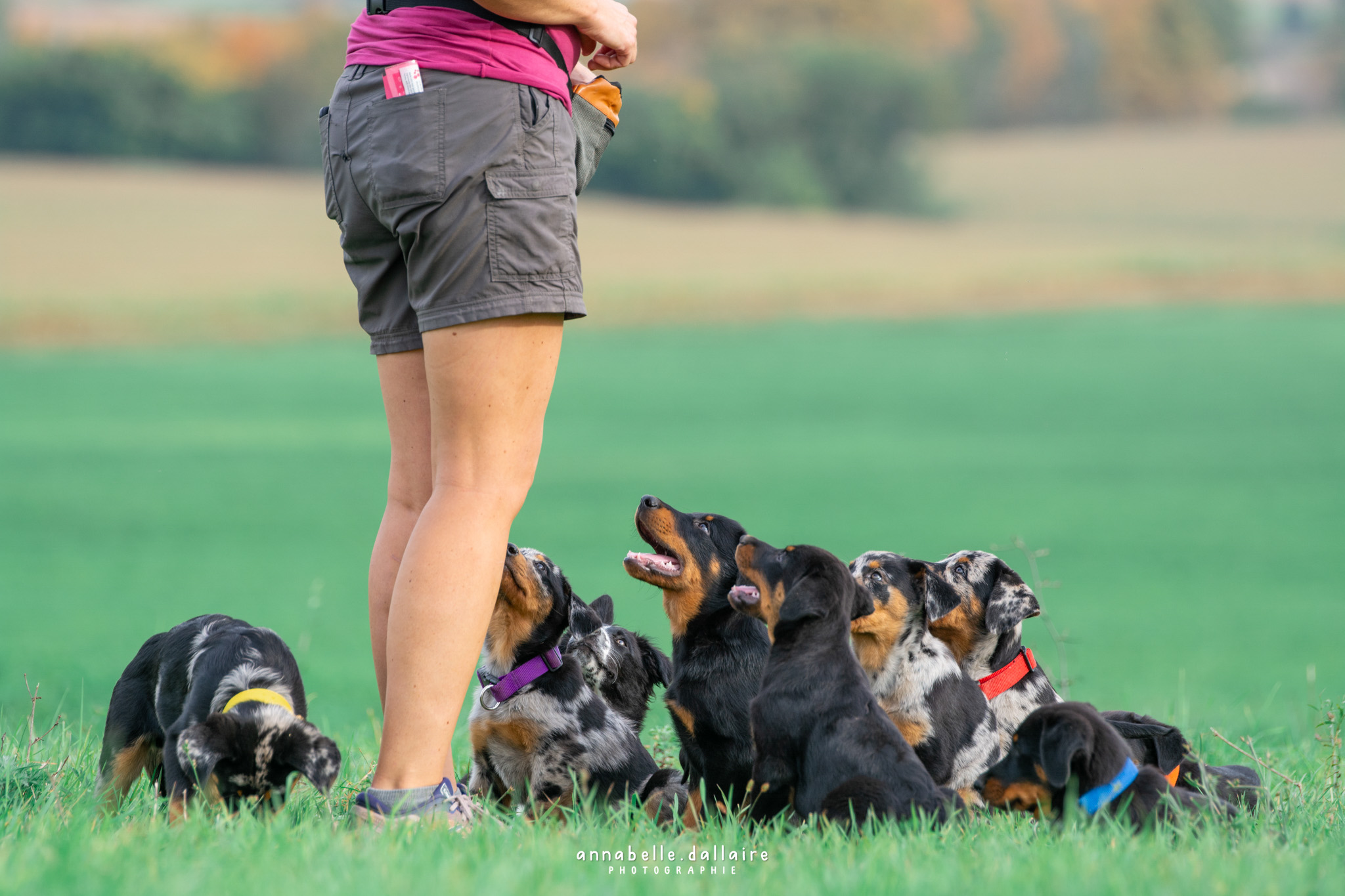
Individual training sessions also separate the puppy from his siblings while providing a positive experience, which helps prevent separation anxiety.
I also work to prevent resource-protective behaviors by giving puppies a high-value treat (such as a piece of raw meat, cooked chicken or the like) when they have a bone or treat to chew on. In this way, they learn that a human approaching them is not trying to steal what they have, but to offer them something even better.
Interaction with adult dogs, other animals and humans is essential for developing social and behavioral skills.
The puppies and their mother stay together until the puppies leave, even when she is no longer nursing them. The mother plays an essential role in the puppies' development. The mother can always isolate herself from her puppies if she wishes.
What's more, the puppies interact daily with the other dogs in the house or in the yard, both young and old. In this way, they learn to understand canine codes and respect other dogs' limits.
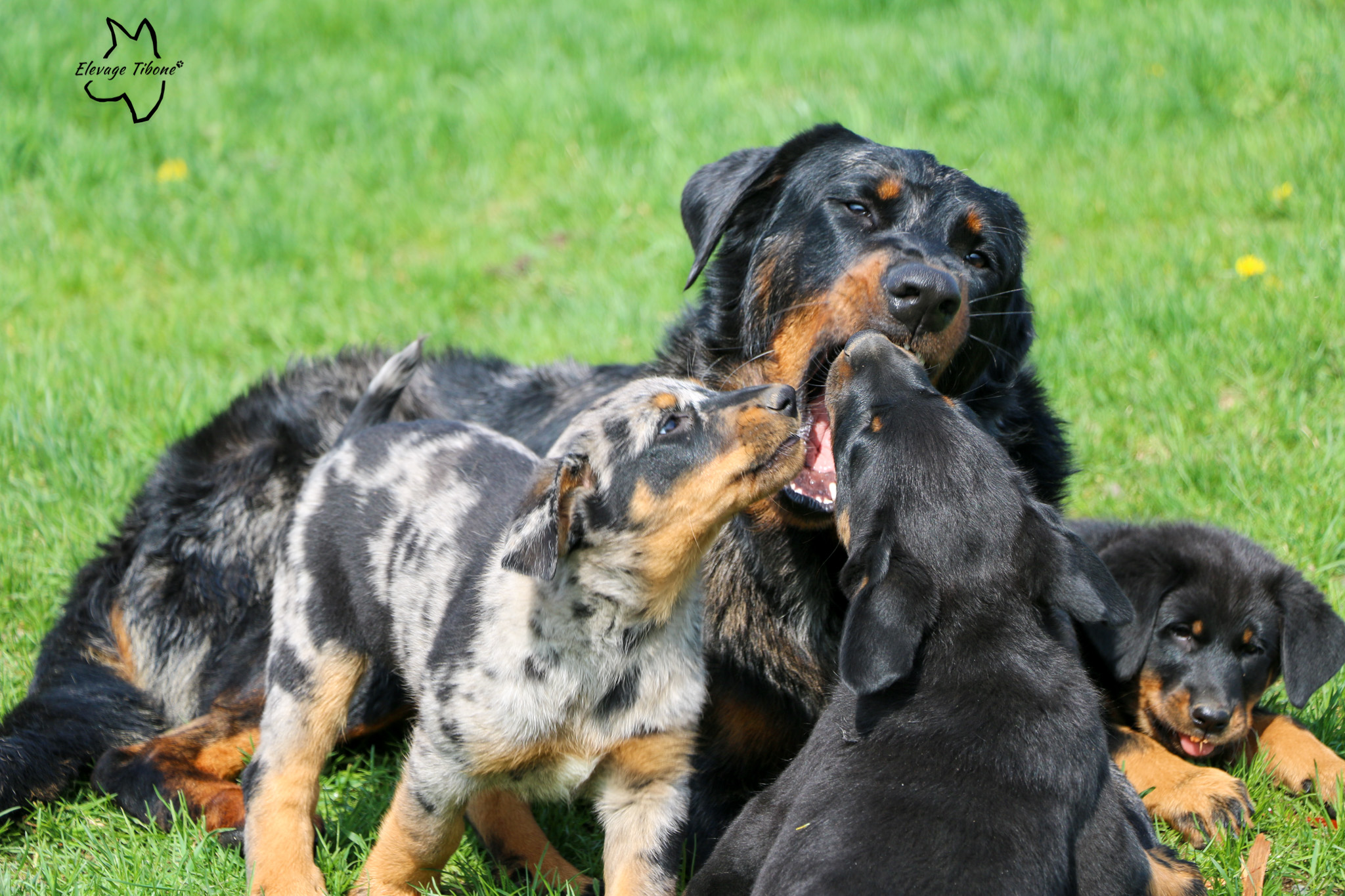
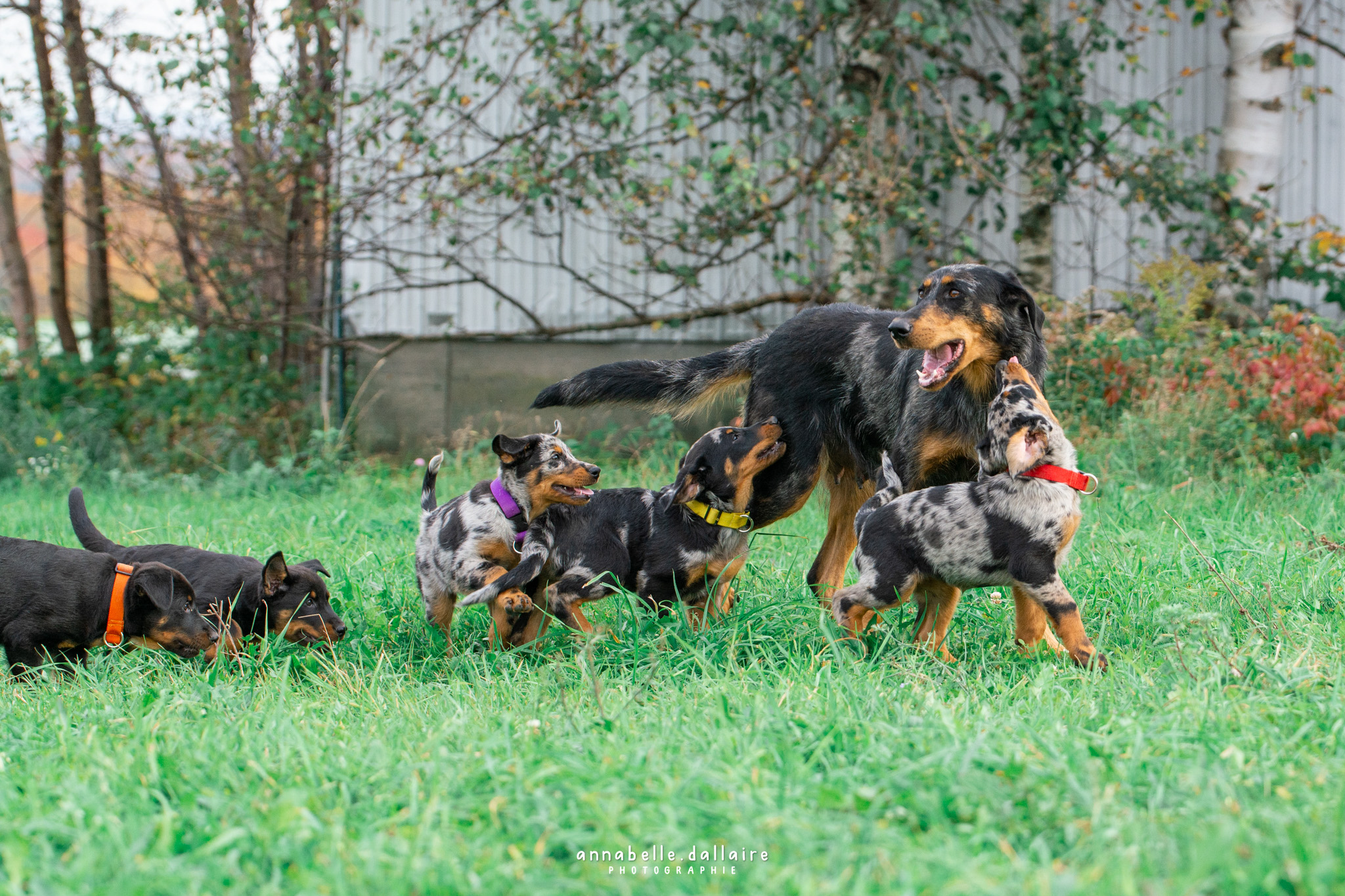
As I said earlier, the puppies live in the house and are in contact with the members of the family (adults and children). In addition, I encourage visits from 4 weeks onwards, so that the puppies can meet different people of all ages, sizes, and so on.
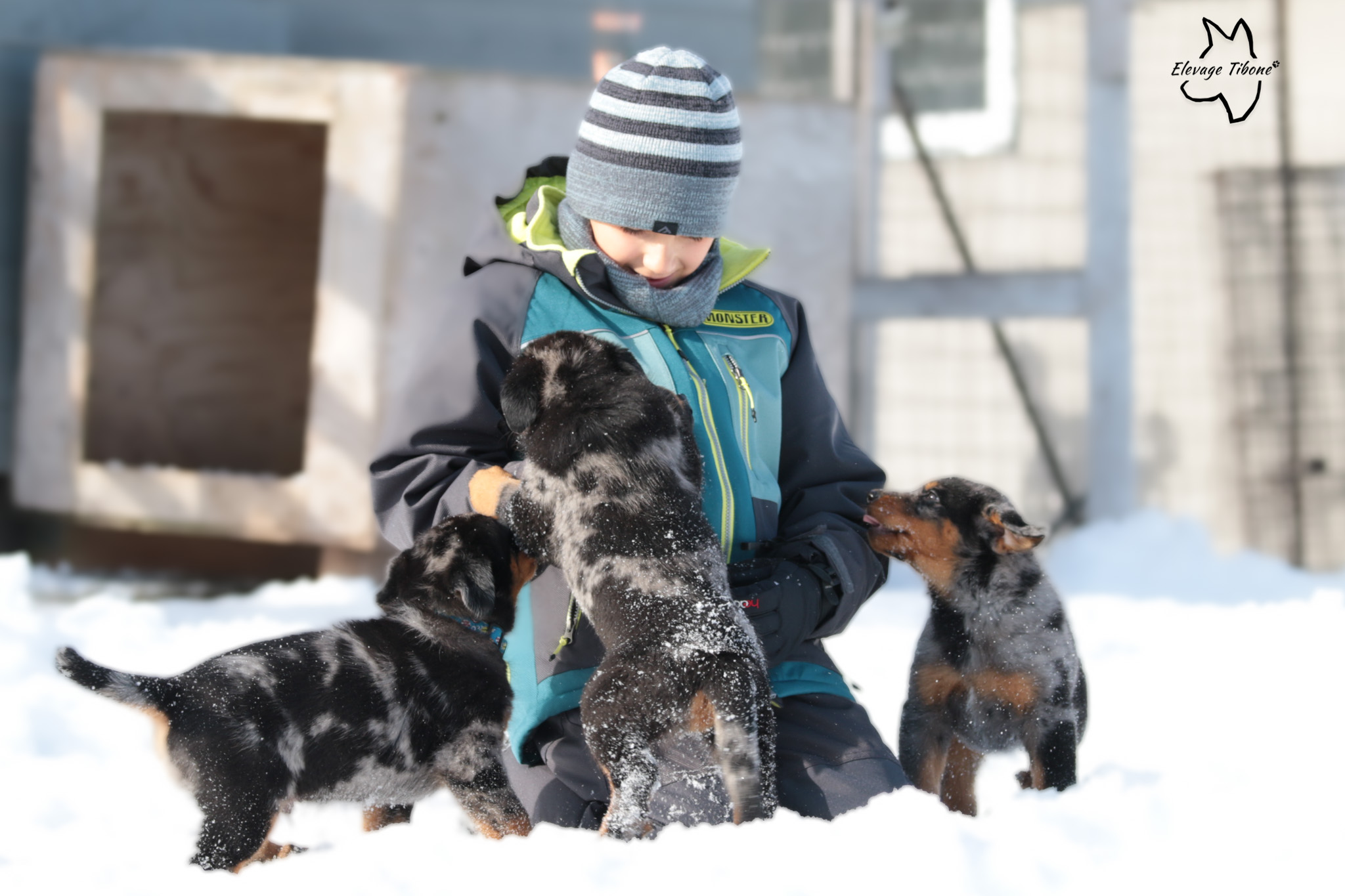
The puppies interact with my 2 cats, one of which adores dogs and plays with the puppies, the other dislikes them and teaches the puppies to respect its bubble!
The puppies are used to the sheep: they see them in the field when they go outside to play, or they accompany me to the barn. They can also see the hens in the coop.
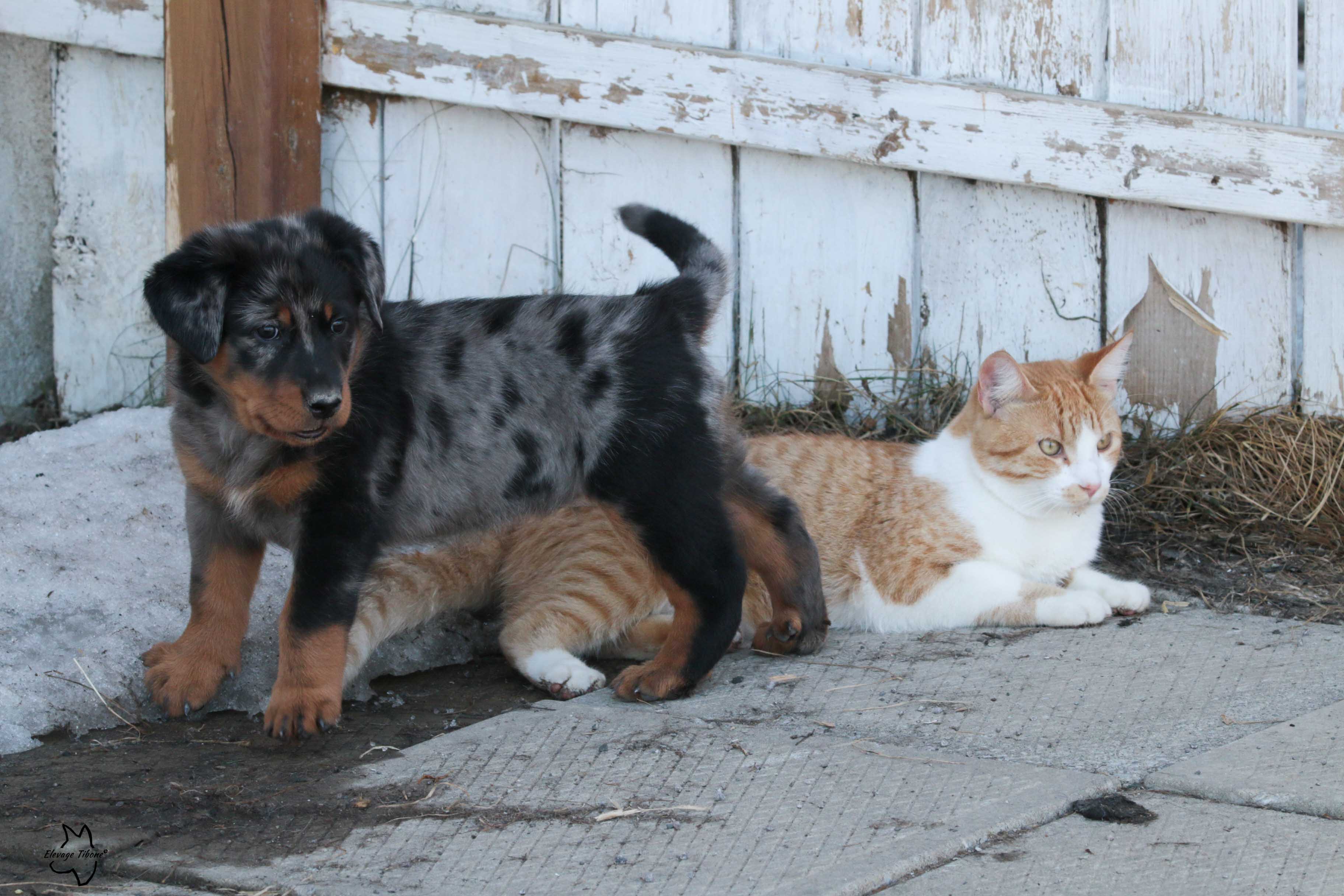
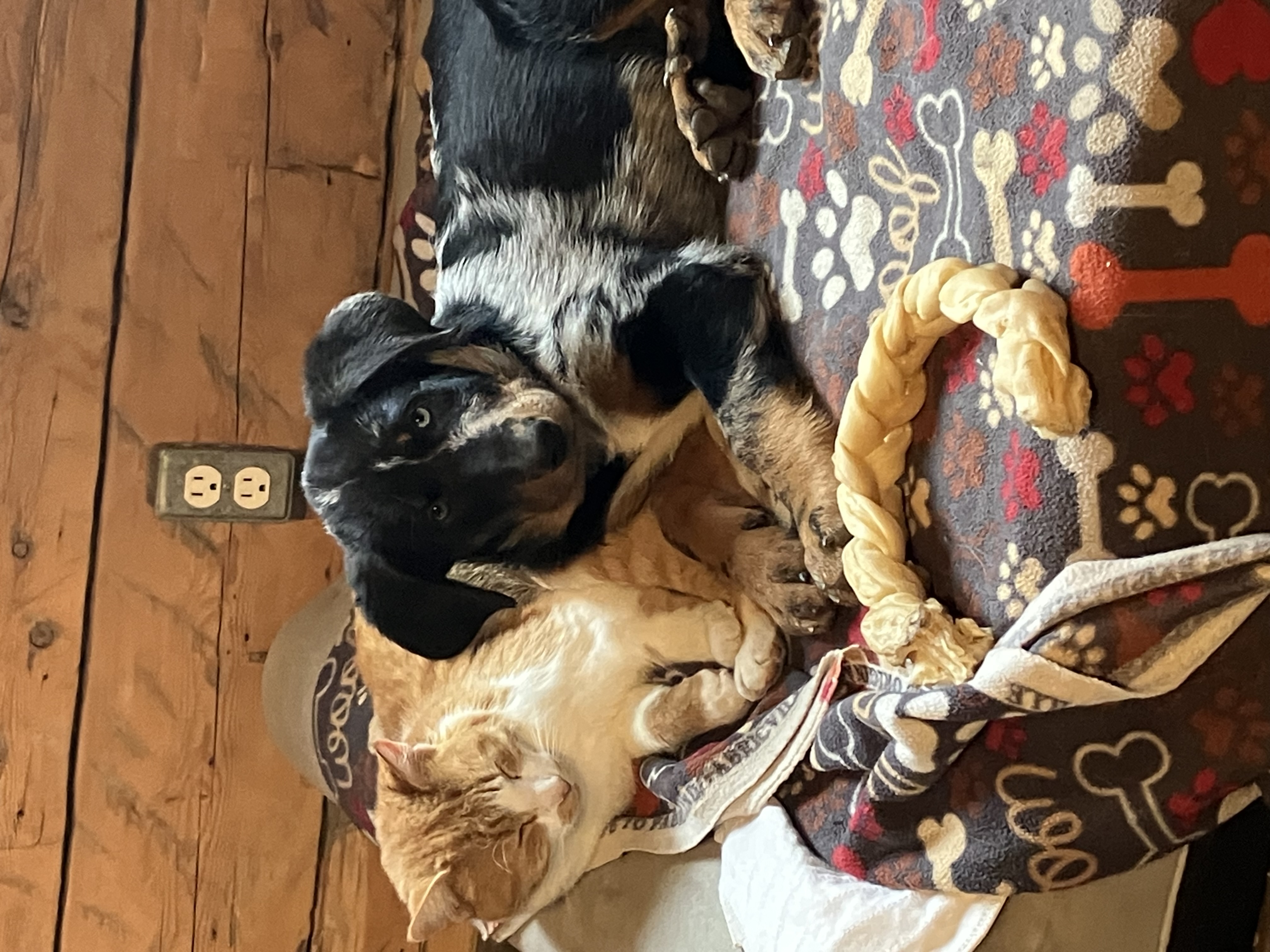
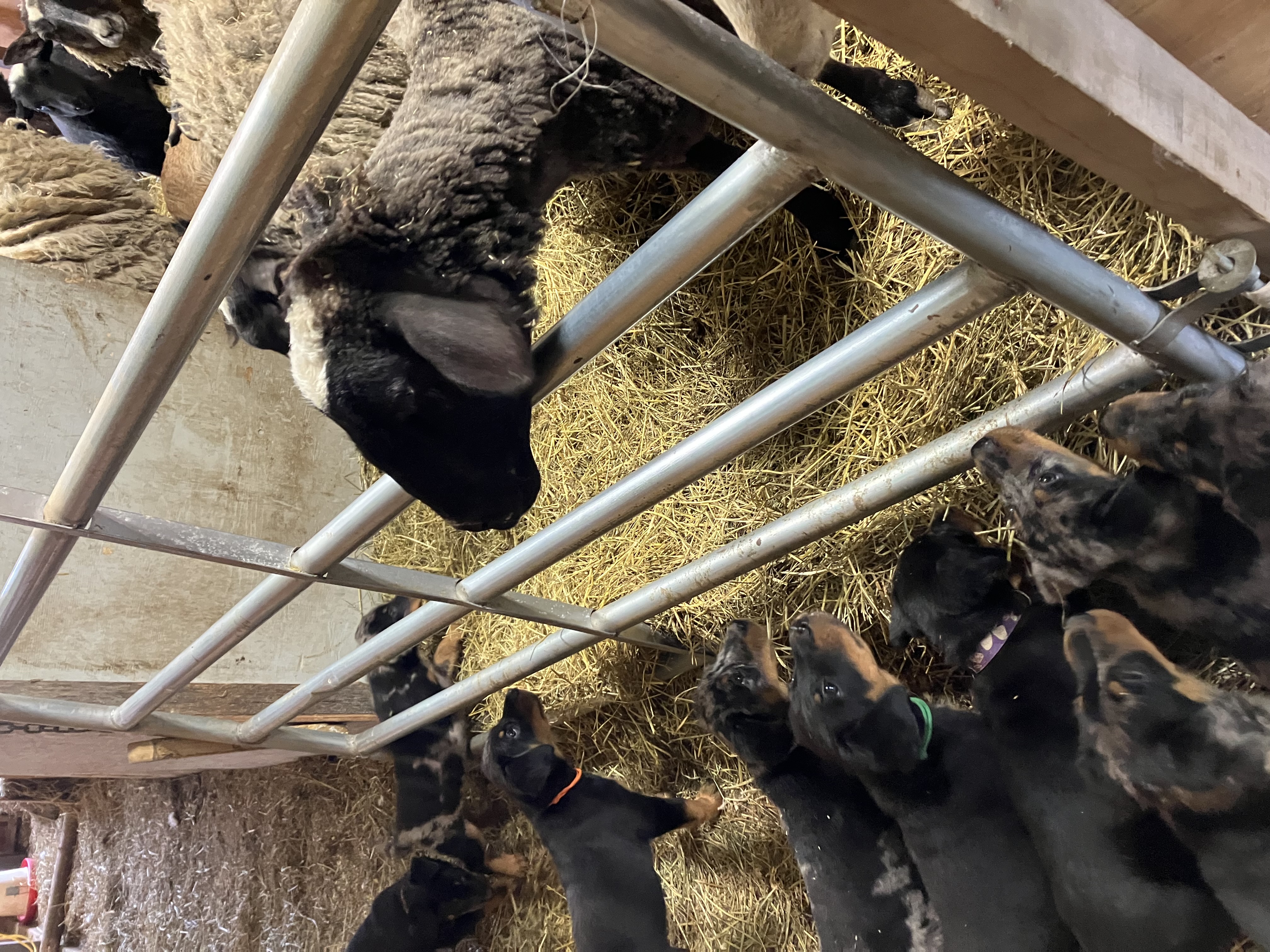
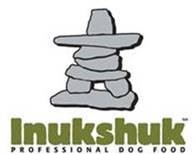
My puppies are fed Inukshuk brand kibbles, a high-quality formula for working dogs. The puppies are fed a chicken or fish formula, adapted to their physiological stage.
They also receive an Omega 3 supplement to promote healthy brain development, and probiotics to support healthy digestive and immune systems. They are introduced to solid food at 4 weeks, and weaning is natural and decided by the mother.
Puppies are wormed regularly between 2 and 8 weeks of age, according to a protocol established with my vet.
I use anti-slip blankets from birth to help prevent hip dysplasia and joint problems in the future.
At around 7-8 weeks, the puppies are examined by the vet and receive their first vaccines.
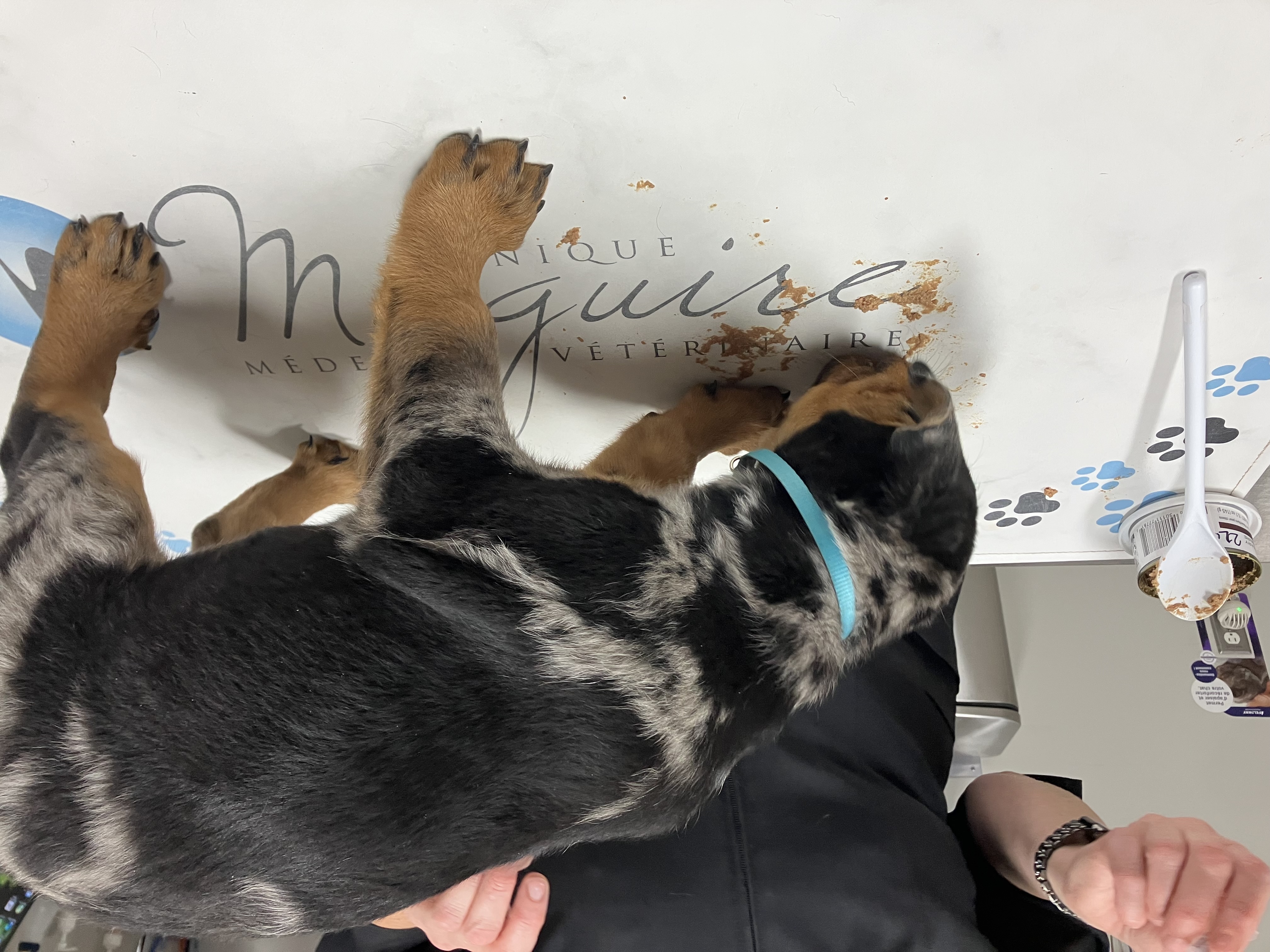
These 2 protocols are done before the socialization period, when puppies are between 3 and 16 days old.
This protocol was developed by the US Army to improve the performance of military dogs (originally called Bio Sensor). It consists of 5 exercises designed to stimulate the neurological system:
Exercises are performed for a maximum of 3 to 5 seconds. The aim is to create a slight stress on the organism in order to obtain adaptation. Of course, you need to be attentive to the puppy and make sure he's not too stressed. My puppies are always very calm during the exercises. If a puppy cries or struggles, it's best to stop and use gentler manipulations.
5 beneficial effects have been observed in dogs exposed to the stimulation exercises of the Early Neurological Stimulation program:
I discovered this program during a course with Avidog. It involves exposing the puppy to a new scent every day between the 3rd and 16th day of life.
The scent doesn't have to be food, but rather natural elements such as leather, earth, sheep's wool (in my case, I always have some!) and so on. We observe the puppy to see if he likes the smell or not, and if he turns away from it, we let him. When the puppy likes a scent, it's very cute to see him exploring and sniffing with intensity!
Although there are no scientific studies on this subject, data from Avidog's breeders on several hundred dogs show that dogs that have been stimulated early perform better in tracking and scent detection tests.
I sell my puppies 2450$ (+tax). They are ready to leave at the age of 9 weeks old and are sold :